Godbound
So as I browsed DriveThruRPG looking for the latest Traveller books (I’m looking at you, High Guard), I noticed a book among the top sellers.
Godbound. Curious, I decided to investigate and found it was not unlike my last review, Gods of the Fall, in that it was designed as a freeform, “become a god” type of game. However, this is where similarities end. Ascension is certainly a fun idea, but how does the game itself hold up?
Fight your way to heaven and get ready to seize the Throne of God: this is Godbound.
Have You Seen My God?
I’ll say this for the game: the backstory is certainly interesting.
Over a thousand years ago (the standard measurement that says you are talking about fantasy history) the Former Empires ruled and life was good. Education was everywhere, disease was unheard of, and everyone had food, work, shelter, and life. This was due to High Magic, which was basically hacking reality using the authority of God, being used by the theurges.
Yeah, it’s capitalized because this setting basically sets up a monotheism, at least at first. See, the Empires decided to start fighting each other (human nature being what it is) until finally, the theurges decided to do the unthinkable: confront the Almighty and ask who had the right to decide the fate of all humanity. So, they stormed the gates of heaven, beat down the angels, approached the throne…and found it empty. God was not there. If he ever was, none were sure. However, the theurges saw a chance here.
In an attempt to seize the throne, they forged new gods, the Made Gods. These artificial gods waged war unheard of before, with powers hitherto untapped. Their wars damaged the fabric of reality itself. The Last War, as it came to be called, did not end with a truce or some great victory, but rather simply winnowed away as the Made Gods faded from the world, destroyed or simply lost.
The world now is diminished, but something new has begun. Some mortals have begun to inherit divine power, shards of the Promethean flame. These Godbound quickly gather power and worship, including you.
While the background explains you, it doesn’t get at some of the serious craziness of the setting. The Former Empires may be gone, but new ones stand in their place. These range from a republic which maintains high level technology to a set of necromancer pirates to a country ruled by automata with mortal serfs. Technology ranges from barbarians with nothing but primitive weapons to what are effectively railguns. Magic and technology frequently interplay, creating things like the Godwalkers (mecha with divine power) and magically powered clockwork cybernetics.
Of course…all of this is somewhat fragile. Every area has problems, issues that need to be resolved, and the Godbound are free to solve them as they wish.
As I said, the setting is nuts, but also has a sort of internal cohesion that lends itself well to campaigns. Want to play a forge master who also happens to have a clockwork arm? You can do that. A savvy sorcerer? Yep, that’s a thing.
Ascension
Making a Godbound is a bit like making a Dungeons & Dragons character. The standard ability score array is present, though modifiers are a bit different. They’re also a bit…odd in terms of functionality. You aren’t going to be increasing them much during play, and some innate powers you’ll have (more on that in a bit) can cause them to jump.
What’s much more interesting is the features that get added. One is called Facts. Basically, you choose three Facts about your character: one about where they’re from, one about how what they did prior to their ascension, and finally one about an important relationship or organization they’re with. The facts give a bonus when they come up. These help to flesh out your character as something more than numbers and “god of X”
Speaking of, one thing that helps define your character is Words. Words are, in effect, your domains and spheres of influence. Each one is a part of the character’s divine nature. These range from elemental like Earth, to obvious ones like Death, and more esoteric ones like Wealth. These carry innate powers with them, some of which are quite potent. Further refinement gives access to divine gifts. These are…well, basically your superpowers. Usually, they’re quite potent in several situations or supremely potent in a single area.
Words are probably the most defining aspect on your character. You can blend together words of Endurance, Might, and Strength to make a potent god of Warriors. Alternatively, Artifice, Knowledge, and Wealth can be a potent support character off the battlefield, knowing and creating whatever is needed at the time. Or, perhaps, you’d prefer Command, Passion, and Sorcery for a mystical leader. Further, you can perform miracles by spending Effort points (think divine power) to do…things. A few things are detailed for what can and can’t be accomplished, but…yes, miracles are every bit as miraculous as you might expect.
There are some optional character options that are worth mentioning. The first is artifacts. Characters can, theoretically, have Artifacts at character creation or build them later…and they are potent. Seeds that grow cities, armor that sacrifices followers to preserve the life as the wielder, or a signet ring that lets you open paths to other realities.
Other options include becoming a local divinity (being god of a nation has perks), martial arts, and themed Godbound to offer a bit of a different focus. The optional rules are nice, giving choices to certain groups who want, maybe, a martial arts epic or play a shapeshifter. Oh, and the mecha. Yeah, divinely powered mecha called Godwalkers. Amusingly, they’re less useful for Godbound than they are for their mortal servants.
Overall, character creation is interesting. There are a wealth of options and it’s entirely possible to make non-combat characters with terrifying capability. It’s a simple task to tweak a character just how you want. Take the war god example. You could swap Endurance for Alacrity to make a swifter combatant who attacks from every angle imaginable, or swap Might for Bow to become a fierce combatant at any range. No two godbound will be exactly alike, and that is a good thing.
What Hath God Wrought?
So…what do Godbound do? Much like with Exalted or Gods of the Fall, the ultimate answer is: whatever you want to. Unlike Gods of the Fall, there isn’t any grand prophecy. Heck, you’re more in the dark than usual: no one is entirely sure what you are! While Exalted has a metaplot and numerous big characters and threats and Gods of the Fall has the Seven Prophecies, Godbound is very much a sandbox idea. Ultimately, the reason you want characters to have goals is that it’s going to be important.
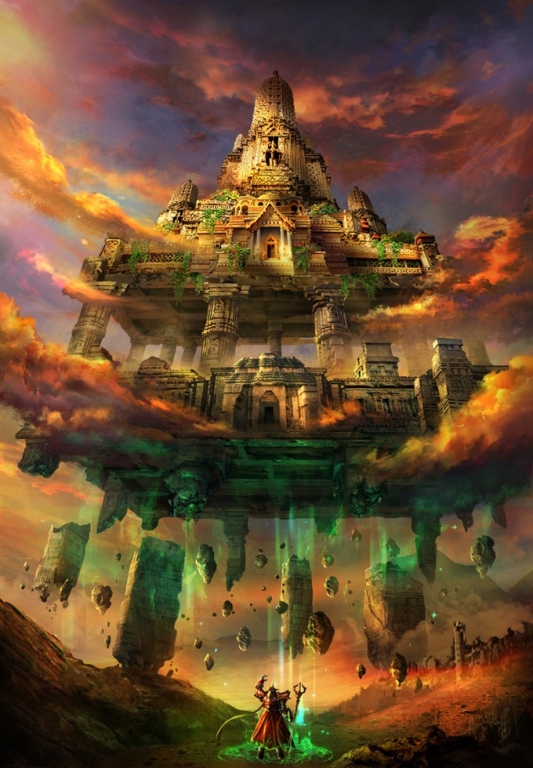
A little to the left…wait, back a bit…
This is where a few concepts come in that are useful for new deities: Influence and Domain.
Influence is a set of points representing how much power you have over something when you give the situation your undivided attention. You could use it to change things so long as you are present and shift and change things to your advantage, but it’s something that requires a hero to focus. While these changes can be lasting, they tend to fade when a Godbound character isn’t directing attention. Mechanically, this operates by committing the Influence to a task. So long as it it bound up, the change remains. However, once it’s loosed, you can move on to the next project. This allows characters to slip from situation to situation.
Dominion is a bit different in that it allows a character to make lasting changes without personal oversight. This can range from forging an artifact to subtly altering the fate of the area. This tends to be a slow process, so it can’t be used on the fly like Influence, but it does give you some serious pull. Dominion is spent on a permanent basis, but it also makes permanent changes. It also tends to be a relatively stable resource.
Speaking of…
Influence is something that comes and goes as the character sees fit. Dominion is something accumulated, mostly through worshipers. As your followers grow, so too does your acquired Dominion. One fun aspect is that you get more points based on how hard your tenants are to follow. A general “be a good person” won’t net you as much as “make one piece of art each month” which in turn won’t hit the “sacrifice a virgin in public every week” level.
The two aspects make it possible to enact real changes on the world, and in my mind are highly useful tools. You can directly deal with it via roleplay, or more off screen with influence, or with a lasting effect through Dominion. With those tools, it becomes far easier to make your will manifest.
Contenders for the Throne
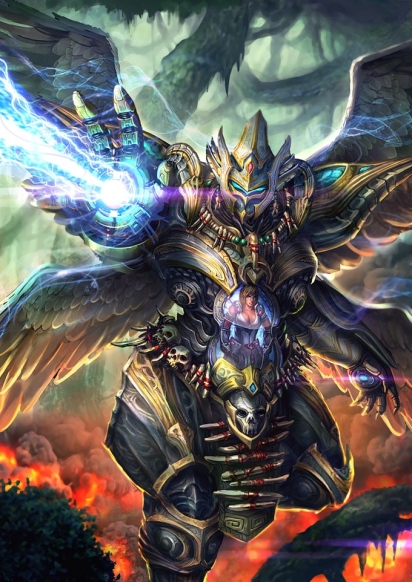
Yeah…this thing can mostly be used to let mortals keep up with you at the start of the game…
Of course, it couldn’t be completely simple. There are forces and foes that will oppose you. Some are relatively simple. Mortals can oppose you, but there’s not a lot they can do individually. One system that is around is called Fray, which allows a Godbound to simply deal damage to unimportant foes. This allows them to simply clear out various issues.
Of course, real foes do exist. Spirits, summoned entities, mobs of lesser foes, and Eldritch spellcasters offer a significant challenge in their own way. There are also angels, parasite gods, and even remaining Made Gods that could potentially destroy lower ranking pantheons. These foes are potentially in the way due to the character’s goals, relationships, or even simply because they are both contenders for power.
These aren’t the only issue one can face, of course. Each country has potential problems and issues. These range from the Bright Republic’s power systems slowly failing to the necromantic pirate nation…being run by necromantic pirates…I really feel like I shouldn’t have to explain that one. Still, each nation has issues. Add this to mystic curses, the primordial darkness making life difficult now and again, and the world generally being complicated…and you have a world that could use some problem solvers.
Honestly, this is probably the most open-ended segment. There are certainly antagonists galore, and many of them will reveal themselves as you strive for power. I’d say the world is…ever so slightly better than Exalted and Gods of the Fall, if only because the world isn’t in constant danger or just a terrible place to live forever. Like the two games, the game is about making the world better…if you can.
Be Ye God or Goddess
Final thoughts on this one are going to be brief. Overall, I see the game having a lot of potential. When I compare it to other games of incredibly powerful individuals, it doesn’t have quite the depth of Exalted, nor the grand scheme of Gods of the Fall. What it does have is options, and lots of them. It’s probably the first game I’ve seen where building a god of _______ is a viable concept that is both nuanced and mechanically important. Further, the different optional mechanics, simple but easily customized design, and plethora of methods of accomplishing goals make this a worthy game in its own right. I’d say give it a look, particularly if you’re looking for something properly mythic.
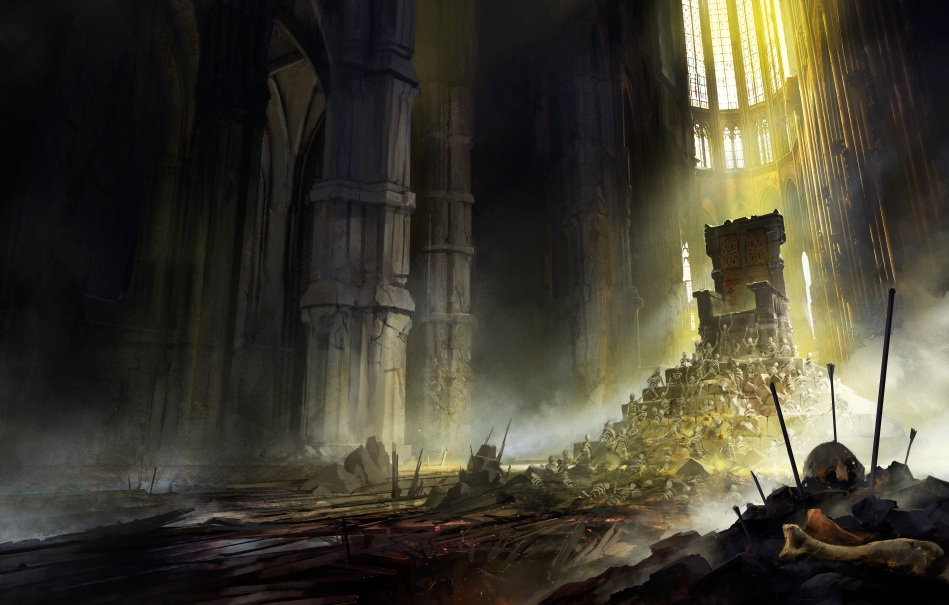
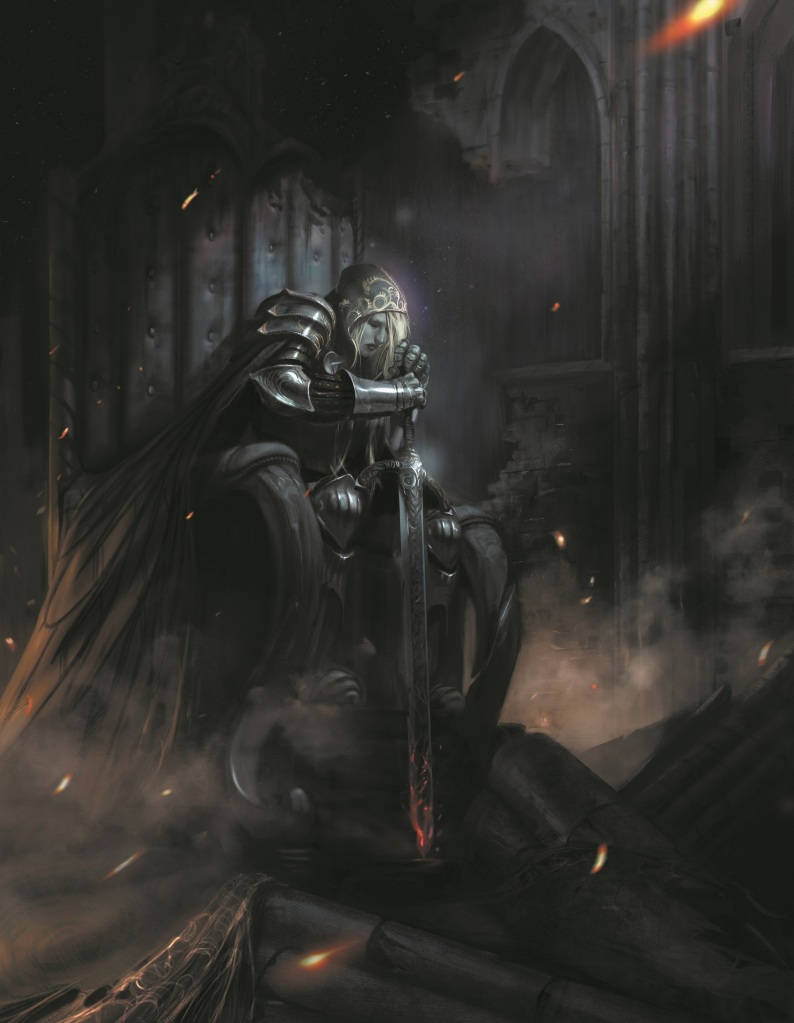
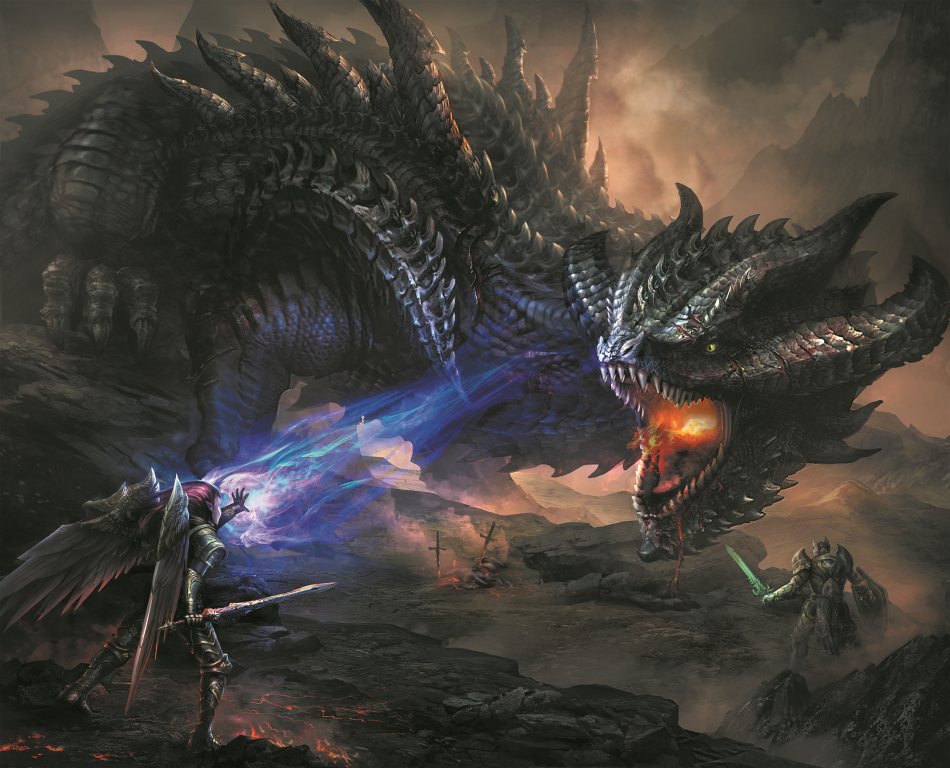
Leave a comment